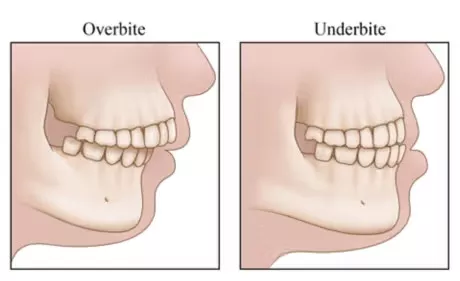![Thumb-sucking [Indian Academy of pediatrics] Thumb-sucking [Indian Academy of pediatrics]](https://static.netnaija.com/i/V5Kv35Zl79m.webp)
Thumb sucking: a seemingly innocent habit that's as common as it is comforting.
Yet, beneath its serene surface, this reflexive act carries potential pitfalls you might not have considered.
Aimed at the older crowd who've moved past lullabies and bedtime stories, here's a look at the unspoken consequences of thumb-sucking:
1. It messes with your teeth
First on our list, and perhaps the most visually evident, are the dental issues. Extended thumb sucking can lead to what dentists call 'malocclusion'-a fancy term for misaligned teeth.

Picture your pearly whites taking a detour, leading to overbites or underbites that could make your smile less camera-ready and more orthodontically challenging.
2. Speech problems
Articulation is an art, and thumb-sucking can throw a wrench in your verbal finesse. The habit might lead to lisps or other speech impediments, as the natural positioning of the tongue is tampered with.
Suddenly, 'Sally sells seashells by the seashore' becomes less of a tongue twister and more of a personal challenge.
3. Jawbone Juggling
Here's something to chew on: the habit can actually reshape your jawbone, affecting its growth and development. This isn't just about aesthetics; it's about function.
A misshapen jaw can lead to difficulties in chewing and even breathing problems over time. It's a domino effect where your comfort today could mean discomfort tomorrow.
4. Skin and nail issues
Let's not forget the star of this show: the thumb itself. Constant sucking can lead to irritated skin, chapping, and even infections if there's a break in the skin's barrier.
And those nails? They're not getting any stronger with each suck. Think vulnerability to fungal infections and you're on the right track.
5. Psychological perspectives
Last but not least, is the psychological aspect. Prolonged thumb sucking is often tied to emotional needs or stress.
While it's a coping mechanism, reliance on it could delay the development of other, more adaptive coping strategies. This isn't about shaming the habit but understanding its roots and effects.
Thumb sucking is more than a phase for some; it's a habit with hidden layers. Like unraveling a mystery, understanding these aspects can lead to better health decisions. After all, knowledge is power, and in this case, it could lead to a healthier, happier you.
















Comments